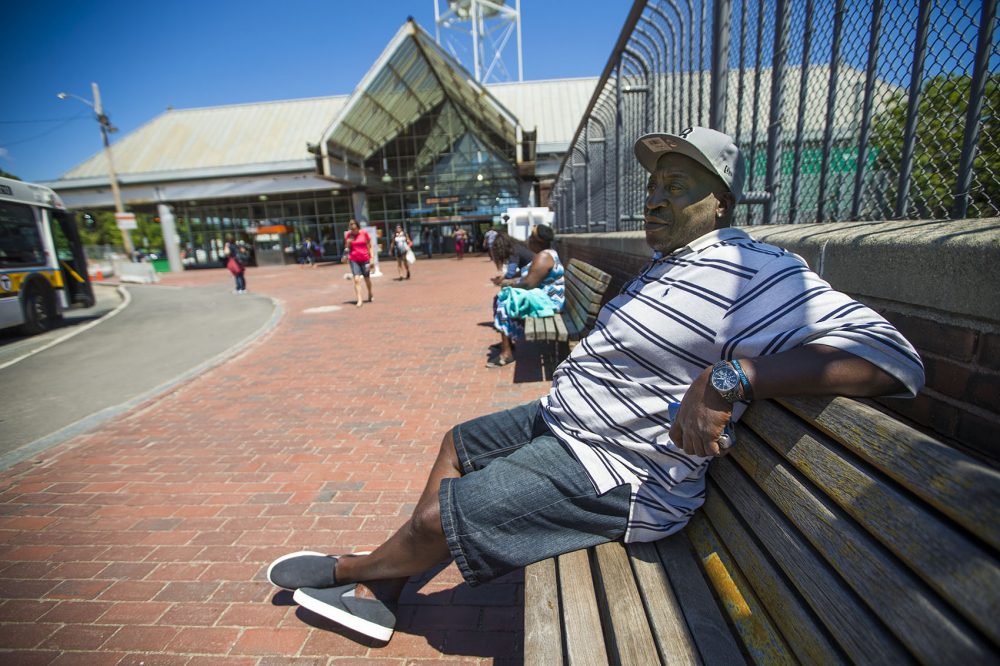Black Drug Users Grapple With Surging Opioid Overdose Death Rates

Clarence, 53, seen here by the Forest Hills MBTA station, says he’s been addicted to heroin for 30 years. Photo by Jesse Costa for WBUR
A thin man with a touch of gray leans against a wall in Boston’s South End and takes a long drag on his cigarette.
He’s pondering a question: Why are opioid overdose death rates steady or dropping for most drug users in Massachusetts, but rising among blacks?
“I have no idea why it’s higher among blacks, none at all,” says Gary. We’ve agreed to use just first names in this story for people whose drug history might hurt their chances of employment or housing.
Gary exhales, then nods. “It’s the fentanyl, has to be the fentanyl,” Gary says.
The powerful synthetic opioid that has largely replaced heroin on the streets of Massachusetts was present in 85 percent of overdose deaths last year.
That figure is included in a state quarterly report that shows that in 2017, overdose death rates dropped 13 percent for whites and 4 percent for Latinos, but increased 26 percent for blacks.
